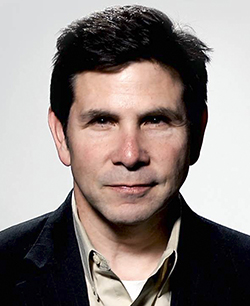Years ago, the Inuit people who lived north of the Arctic Circle practiced a form of euthanasia. Once people reached a certain age they would be put adrift on an ice floe to eventually starve. People learning of this today are horrified, protesting that humans should not be “killed off” merely because they are elderly and have needs. So who is right, the Inuit or everyone else?
Actually, both the Inuit and contemporary people who disagree with them are operating from the same moral principle: preserve human life. The difference is on the specific course of action. The Inuit believed resources were scarce and, in order to preserve human life, they had to reserve those resources for the young and those who could still contribute to the tribe. Because there were not enough resources for everyone, they reasoned that if someone had to starve it would be most beneficial for the whole tribe that those who had lived a full life and could no longer contribute would make the sacrifice. People today may protest, but the actions of the Inuit were very much in keeping with the assumptions of a Darwinistic worldview.
Shortly after the famous Scopes trial in Dayton, Tennessee, (which brought the conflict between creation and evolution to a national focus), the president of the American Association for the Advancement of Atheism at the time wrote, “Evolution is atheism.” In his book River out of Eden: A Darwinian View of Life, Richard Dawkins summarized the evolutionist’s bleak assessment about the forces at work in this world writing, “At bottom, no design, no purpose, no evil and no good . . . nothing but blind, pitiless indifference.”
Statements like this illustrate the impassable gulf separating belief systems that acknowledge a Creator and ones that do not. Each position includes core assumptions that conflict with the other side. If the core beliefs of each side are upheld consistently, the believer in evolution and the believer in creation will inevitably reach an impasse.
In the nearly 160 years since the publication of Origin of the Species, Darwinism’s confident rejection of belief in a creation moment in the past and a future day of judgment has yielded decidedly negative results. The redefinition of marriage and the family; the moral revolution of the 1960s; the cultural acceptance of premarital, and extramarital, sex; and abortion on demand have all been “legitimized” by Darwinism’s assumed truthfulness.
Space does not permit an exhaustive critique of horrid ideas such as eugenics and forced sterilization of minorities (espoused by Planned Parenthood founder Margaret Sanger, who was deeply influenced by Darwinism). Also influenced by the presuppositions of evolution was Adolf Hitler, whose “final solution” regarding the Jewish people was, in his mind, the mere application of “survival of the fittest.” In a comparatively brief century-and-a-half, evolution has cut swaths across history that is indelibly dark and undeniably tragic.
In contrasting assumptions and outcomes of worldviews, the most common distinction made is whether or not a Creator was originally present. Did God make us, or did we spontaneously evolve? But equally relevant to the discussion is the question of human destiny. Will mankind ever face a final judgment? Evolution assumes that God is not part of our past and, therefore, God plays no role in our future.
Can atheists and evolutionists act morally? Of course. But do those who reject God have any objective reason for doing so? No. Are there any clear guidelines on right living; is there any objective basis for values or ethics? No. Evolution gives no real answers of the origin of life, even less so on how to live.






